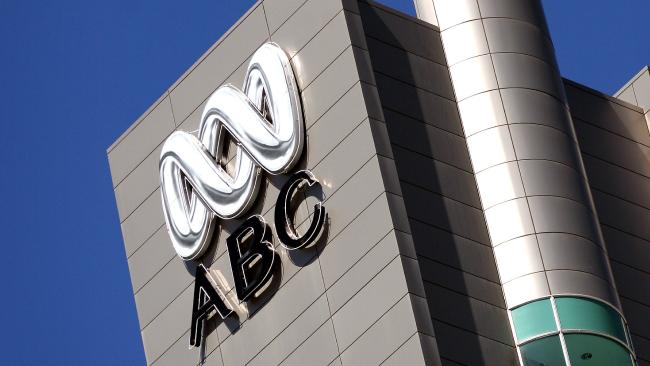IN THE MEDIA
ABC ignores editorial policy to run Al Jazeera stories
July 3, 2017 | Colin Rubenstein

Colin Rubenstein
The Australian – July 3, 2017
The recent decision by Saudi Arabia, Egypt, Bahrain and the UAE to blockade Qatar over its regional policies, including alleged support for terror organisations, Muslim fundamentalist groups and Iran, has put the spotlight once again on ABC and SBS telecasts and broadcasts of full news programs and smaller packaged stories and interviews by Al Jazeera, Qatar’s state-owned and funded global news outlet.
For years, ABC has defended its use of Al Jazeera’s English language news programming, despite mounting evidence that its use violates the editorial policy that the taxpayer-funded ABC must respect, according to its charter.
On ABC radio’s news program The World Today on June 9, Australian journalist Peter Greste – a former Al Jazeera employee who Egypt imprisoned for months as part of a thinly veiled political row with Qatar – gave further reason to question ABC’s ongoing relationship with Al Jazeera.
Greste said that he and his colleagues at Al Jazeera were not aware of any connection between the network and terrorist organisations or the Muslim Brotherhood, but that “there may be some truth in that at a higher level, a management level (there was)”.
Greste added: “It seems pretty clear from watching some of Al Jazeera’s Arabic coverage and the coverage of Al Jazeera’s Egyptian channel Mubasher (Misr) that there was a bias in favour of the Muslim Brotherhood,” he said. “Politically they seemed quite aligned with the Brotherhood.”
According to ABC’s editorial policies, section 13 (external funding and relationships), section 1 (standards), arrangements such as the content sourcing and rebroadcasting deal ABC has with Al Jazeera “must be scrutinised by an appropriately senior ABC person designated for the purpose who must reject the arrangement unless satisfied that the independence and integrity of the ABC are fully protected”.
“Factors to consider include … c) the nature of the external partners’ interest in the subject matter of the content and in broadcast or publication of the content by the ABC, and how that interest – whether it be political, commercial, sectional, personal or otherwise – is likely to be perceived.” ABC has long defended its use of Al Jazeera even in the face of official complaints that have pointed out Al Jazeera’s clear conflict of interest where the stories overlap with the interests of the Qatari ruling family.
This includes coverage of political events in the Middle East and, obviously, Israel and the Palestinians. Nevertheless, ABC continues to give Al Jazeera two unedited hour-long programming slots daily, for Newshour and Newsgrid.
Meanwhile, audio from Al Jazeera is commonly used at length on ABC Newsradio, including stories clearly the subject of Qatari foreign policy interests.
Claims of Al Jazeera’s bias aren’t only coming from Peter Greste and they’re not only about the network’s Arabic programming.
For example, in 2015, two former employees of Al Jazeera America, Shannon High-Bassalik and Matthew Luke, filed separate lawsuits alleging pervasive antisemitism and sexism in the newsroom.
High-Bassalik also said journalists at the network were instructed by management to attack Israel in their stories, including through the use of inflammatory taglines and captions.
Her lawsuit was met with resignations by three top Al Jazeera executives in human resources and communications, on the grounds that they could not support the decisions or direction of the network.
In a complaint AIJAC submitted to ABC in 2013 over Newsradio’s use of a malevolent Al Jazeera report on Israel’s treatment of Bedouin Arabs in the Negev region, ABC defended its decision to air the story purely on its merits, while “acknowledging” parts of the story were “inflammatory”.
The ABC’s defence begged incredulity. Qatar’s ruling family, the owner of Al Jazeera, is one of the main supporters of Hamas – a terror group committed to Israel’s destruction. Al Jazeera’s anti-Israel obsession has seen English language “documentaries” alleging – for example – Israel’s “lobby” controls Washington and London, that Israel poisoned Yasser Arafat, and that Israel stole Egypt’s natural gas. None of these so-called exposes stand up to fact-checking.
Even if ABC doesn’t air those documentaries, its obligations to the taxpayer under its editorial guidelines require ABC to evaluate Al Jazeera’s editorial policies beyond what ABC itself chooses to air.
By any fair assessment, Al Jazeera’s political interest in its content should preclude the ABC from using any content from Al Jazeera, even if that particular content apparently conforms with ABC standards.
Section 13 of ABC’s editorial policy actually forbids the public broadcaster from entering into content-sharing relationships with entities like Al Jazeera, because ethical journalism demands that ABC evaluate the source and intent of the producer of the content.
Moreover, in the current Gulf crisis, ABC must understand that its ongoing relationship with Al Jazeera makes a political statement, even if unintentionally, that it stands with Qatar in the dispute. If the ABC stopped airing Al Jazeera that would not need to be interpreted as standing with the Saudis, given there is ample justification for ending the relationship on other grounds.
It’s high time for ABC and SBS executives to re-evaluate their relationships with Al Jazeera and ask themselves at what point Al Jazeera’s political baggage and inherent bias finally becomes too blatant for Australia’s public broadcasters to carry.
Dr Colin Rubenstein AM is executive director of the Australia/Israel & Jewish Affairs Council (AIJAC). He taught Middle East politics at Monash University for many years.
Tags: Australasia





